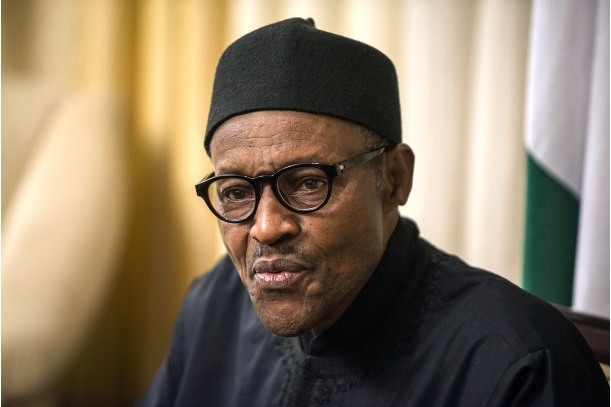Latest News
Nigeria urgently needs coherent, coordinated policies – IMF

News Highlight
IMF said the country’s outlook under current policies remained challenging.
The International Monetary Fund (IMF) has expressed the need for Nigeria to take urgent action on a coherent and coordinated set of policies to reduce the country’s economic vulnerabilities and increase growth over the medium term. IMF conveyed this in the statement it issued, Tuesday, at the end of its consultations with stakeholders in Nigeria between September 25 and October 7, 2019, on economic and financial developments in the country.
In conveying the preliminary findings of the consultations with senior government and Central Bank of Nigeria (CBN) officials, representatives of the banking system, the private sector, and international development partners, IMF observed that Nigeria’s slow economic recovery was continuing, inflation falling, and external buffers declining in the face of increased portfolio outflows. It also observed that elevated fiscal deficits rely on financing by CBN, thereby complicating monetary policy.
“The pace of economic recovery remains slow, as depressed private consumption and investors’ wait-and-see attitude kept growth in the first half of the year at 2 percent, a rate significantly below population growth,” IMF said. On the positive side, IMF noted that headline inflation has fallen, reaching 11.02% last August, its lowest level since January 2016, helped by lower food price inflation.
However, the global financial institution reported that one-off increases in imports saw the country’s current account turn into a deficit in the first half of 2019 after three years of surpluses. Gross international reserves have fallen to below $42 billion at end-August 2019, mainly reflecting a decline in foreign holdings of short-term securities and equity. But the exchange rate in the various windows by the CBN remained stable, helped by steady sales of foreign exchange by the central bank.
IMF also observed that government revenue underperformed significantly relative to the budget target in the first half of 2019. It attributed this to over-optimistic revenue projections, which resulted in over-reliance on expensive borrowing from the CBN to finance the fiscal deficit. Federal government interest payments continue to absorb more than half of revenues in 2019.
IMF said the country’s outlook under current policies remained challenging. Growth is expected to pick up to 2.3 percent this year on the strength of a continuing recovery in the oil sector and the regaining of momentum in agriculture following a good harvest.
IMF projected that revenue initiatives planned under the 2020 budget — including a VAT reform that increases the tax rate from 5% to 7.5% (but with VAT exemption for basic food products) will help to partially offset declining oil revenues and the impact of higher minimum wages.
“The current account’s shift to a deficit is expected to persist while the pace of capital outflows continues to weigh on international reserves,” IMF said, while also projecting that inflation will likely pick up in 2020 following rising minimum wages and a higher VAT rate, despite a tight monetary policy.
To counter the financial headwinds, IMF recommended an urgent comprehensive package of measures, whose design and implementation will require close coordination within the economic team and the newly-appointed Economic Advisory Council, to reduce vulnerabilities and raise growth.
IMF also advised that the increasing CBN financing of the government reinforced the need for an ambitious revenue-based fiscal consolidation that should build on the initiatives laid out in the federal government’s Strategic Revenue Growth Initiative. “A tight monetary policy should be maintained through more conventional tools. Managing vulnerabilities arising from large amounts of maturing CBN bills — including those held by non-residents — requires stopping direct central bank interventions, the introduction of longer-term government instruments to mop up excess liquidity and moving towards a uniform market-determined exchange rate,” IMF said.
The IMF also advised on the risk of CBN’s new policy to spur bank lending, while observing that banking sector prudential ratios were improving. “New regulations to spur lending — which has recently increased — should be carefully assessed and may need to be revisited in view of the potential unintended consequences on banks’ asset quality, maturity structure, prudential buffers and the inflation target,” IMF said.
In concluding the Article IV Consultation report, IMF said structural reforms, particularly on governance and corruption and in implementing the much-delayed power sector recovery plan, remained essential to boosting prospects for higher and more inclusive growth.
Related News
Latest Blogs
- The Museum of West African Art saga
- The complexity and complication of Nigeria’s insecurity
- Between bold is wise and wise is bold
- Prospects of port community system in Nigeria’s maritime sector
- Constitutionalism must anchor discipline in Nigerian Armed Forces
Most Popular News
- NDIC pledges support towards financial system stability
- Artificial intelligence can help to reduce youth unemployment in Africa – ...
- Afreximbank backs Elumelu’s Heirs Energies with $750-million facility
- AfDB and Nedbank Group sign funding partnership for housing and trade
- GlobalData identifies major market trends for 2026
- Lagride secures $100 million facility from UBA







